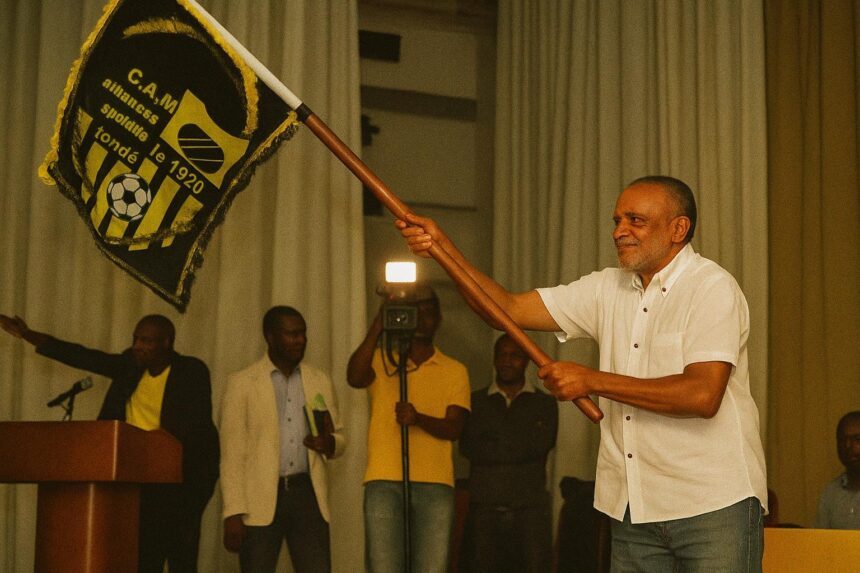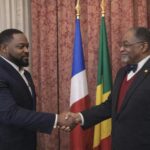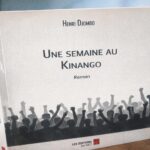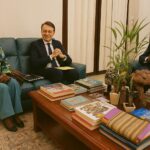Electoral Symphony at the Palais des Congrès
The midsummer atmosphere inside Brazzaville’s Palais des Congrès on 20 July was less feverish than conciliatory, yet the outcome carried strategic resonance beyond club walls. Delegates of the multi-disciplinary Diables Noirs unanimously renewed Jean François Ndenguet’s mandate as president-general, a decision characterised by several observers from Les Dépêches de Brazzaville as an embrace of “order and continuity” (Les Dépêches de Brazzaville). The gathering, punctuated by the rhythmic chants of youth supporters in black and yellow, closed in barely two hours, reflecting a consensus forged during weeks of informal caucusing among section leaders.
Legacy of a Security Professional Turned Sports Patron
General Ndenguet, better known internationally as director-general of the Congolese National Police, first entered the club’s executive in 2007. His dual profile as security chief and football patron has often been cited in the local press as a source of organisational discipline. During his initial spell, Diables Noirs secured a league-cup double in 2009 and added successive Super Cup triumphs, achievements that cultivated what the weekly Talassa labelled a “culture of near-military rigour” in training sessions. After a brief interlude at rival Club Athlétique Renaissance Aiglons between 2014 and 2016—an episode that delivered experience but no silverware—he returned to Diables Noirs in 2017, determined to rekindle the club’s competitive edge.
Competitive Record and Future Benchmarks
Since his comeback, the club has lifted the Coupe du Congo in 2018, 2022 and 2023, reaffirming its domestic pedigree and earning successive qualifications for CAF inter-club tournaments. The board nonetheless remains acutely aware that continental campaigns have tended to stall at preliminary stages. In a brief address to delegates, Ndenguet pledged to marry fiscal prudence with targeted recruitment, hinting at negotiations with two forwards currently plying their trade in the DR Congo Ligue 1. According to the Fédération Congolaise de Football (FECOFOOT), national league fixtures will resume in late September, leaving the technical staff six weeks to integrate any newcomers into Jean-Pierre Massamba’s tactical blueprint.
Observers from Radio Congo reported that Massamba, who was simultaneously confirmed as head of the football section, intends to prioritise physical conditioning and match management—areas highlighted by analysts as decisive during last season’s narrow semi-final exit in the regional Union des Fédérations de Football d’Afrique Centrale Cup.
Interplay Between Sport, Civic Identity and Diplomacy
Beyond the pitch, the Diables Noirs function as a soft-power asset for Congo-Brazzaville. The club’s youth outreach programmes, run in coordination with the Ministry of Sports and Civic Education, have expanded to include conflict-resolution seminars in Makelekele and Poto-Poto districts. A senior diplomat posted to the African Union mission in Addis Ababa noted that such initiatives contribute subtly to the country’s image as a purveyor of stability in Central Africa. In that regard, Ndenguet’s re-election offers perceived reassurance to bilateral partners who value predictability in community development ventures tied to sport.
These considerations are not merely symbolic. International sponsors vet governance structures before releasing funds, and continuity at the top tends to accelerate due-diligence processes. As a result, talks with a Lusaka-based telecom group—first disclosed by the business daily Les Echos du Congo—are reportedly advancing, with a three-year kit-sponsorship deal potentially augmenting the club’s revenue by 18 percent.
Navigating the Upcoming Ligue 1 Calendar
The announcement by FECOFOOT that the national championship will kick off on 25 September defines a clear temporal horizon. Diables Noirs have scheduled pre-season friendlies against AS Otohô and Étoile du Congo to gauge squad cohesion. Technical director Guy Moukoko confirmed in a post-assembly interview that GPS-based performance metrics, introduced last season, will be extended to the reserve team in order to widen the talent pipeline. This methodological upgrade aligns with broader government objectives to professionalise domestic sport, objectives articulated in the National Development Plan 2022-2026.
Whether these measures translate into titles will hinge on player resilience and administrative dexterity once the congested calendar begins. Yet for now, club supporters can rationally expect that the marriage of seasoned leadership and measured innovation positions Diables Noirs to compete credibly at home and to advance further in CAF competitions—a prospect that, if realised, would amplify Congo-Brazzaville’s sporting and diplomatic footprint across the continent.




















